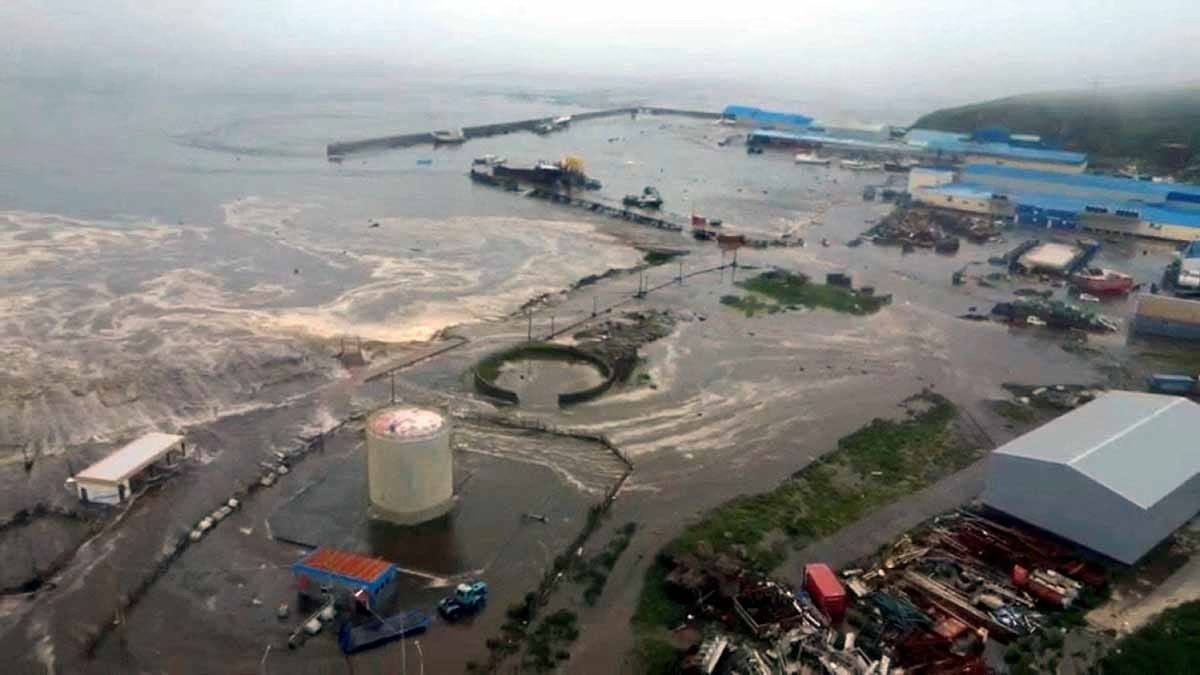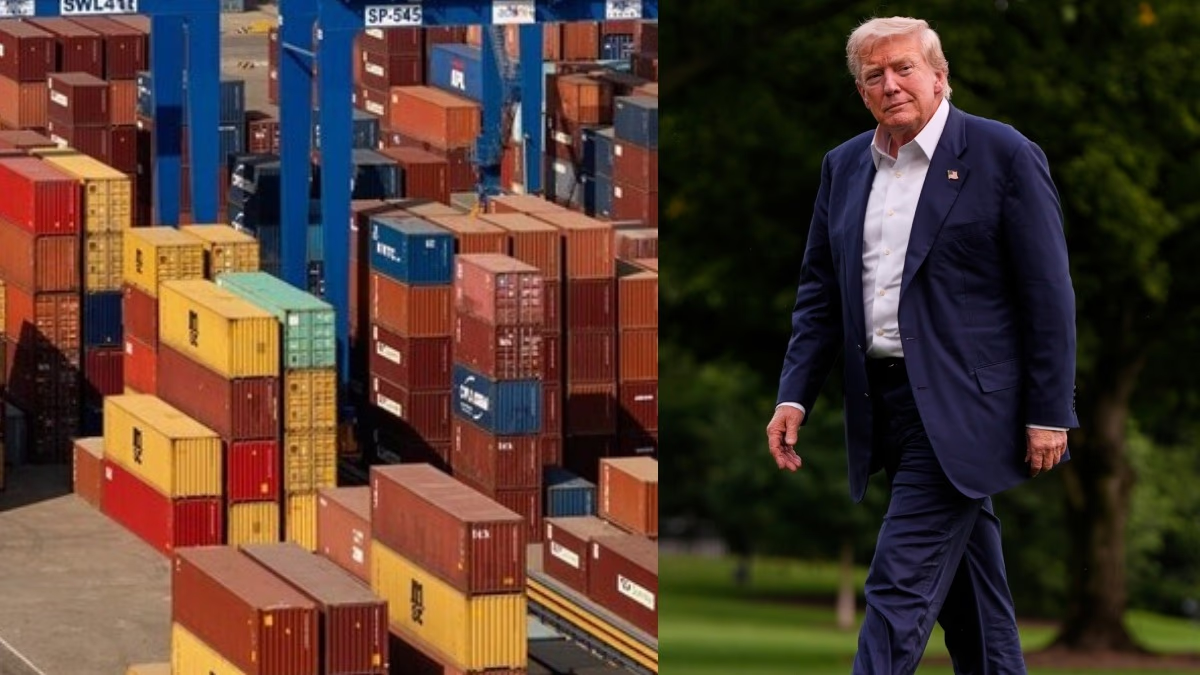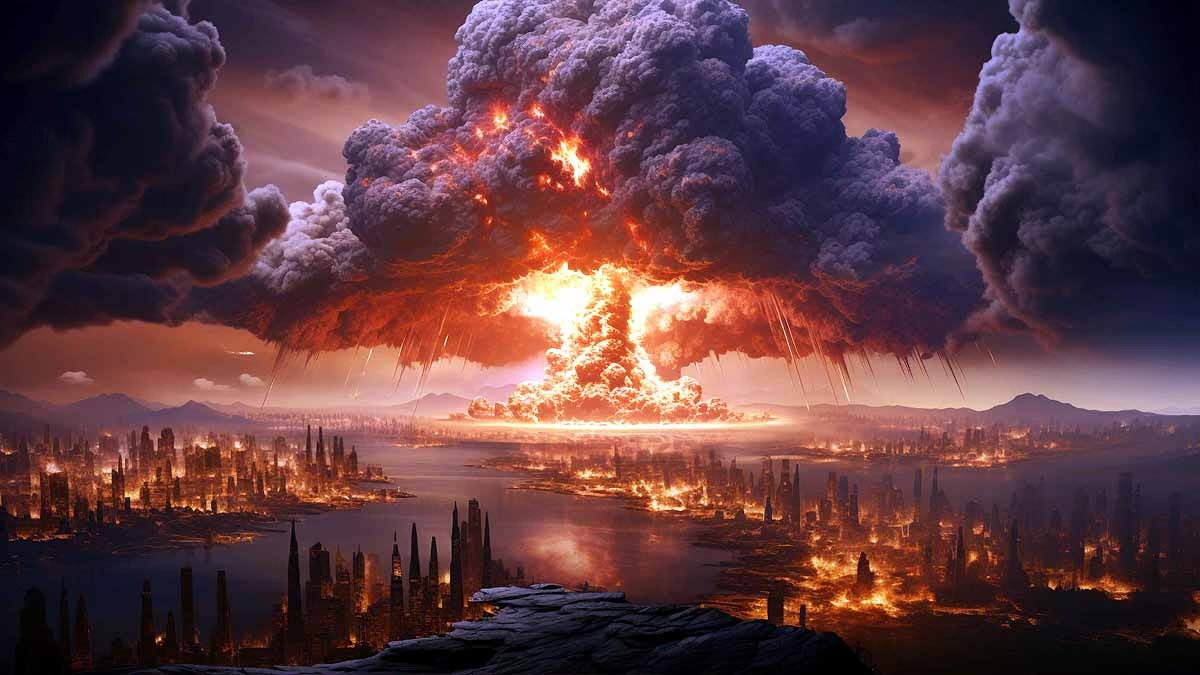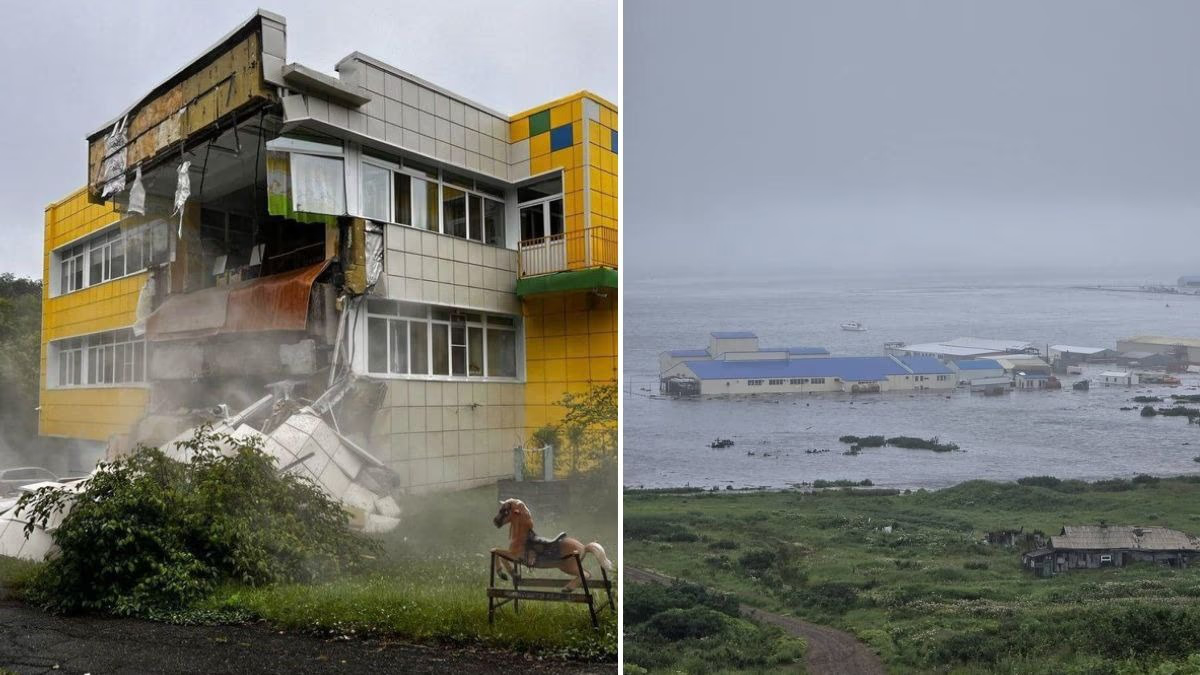An 8.8 magnitude earthquake struck near Russia's Kamchatka Peninsula, triggering tsunami threats across the Pacific region, including areas like Russia, Japan, Hawaii, California, Alaska, and the Solomon Islands.
Which cities in these countries face tsunami threats? How long will the threat persist? When did or will tsunami waves reach various places? We will offer a comprehensive listicle detailing where and when tsunami waves have reached or are expected to arrive.
8.8 Magnitude Earthquake Sparks Tsunami Threat
The powerful earthquake occurred 126 km off the eastern coast of Kamchatka on July 30, 2025, at 8:25 AM (Kamchatka local time, 4:55 AM IST), at a depth of just 19.3 km, causing the seafloor to tremble and initiate tsunami waves. This marks one of the most potent earthquakes in Kamchatka since 1952.
Read More:
According to the Pacific Tsunami Warning Center (PTWC), waves of 1 to 3 meters in height could affect coastal parts of Hawaii, Chile, Japan, and the Solomon Islands, while areas in Russia and Ecuador might face waves exceeding 3 meters. These tsunamic waves are rapidly expanding across the Pacific Ocean, imposing threats on numerous coastal zones in multiple countries.
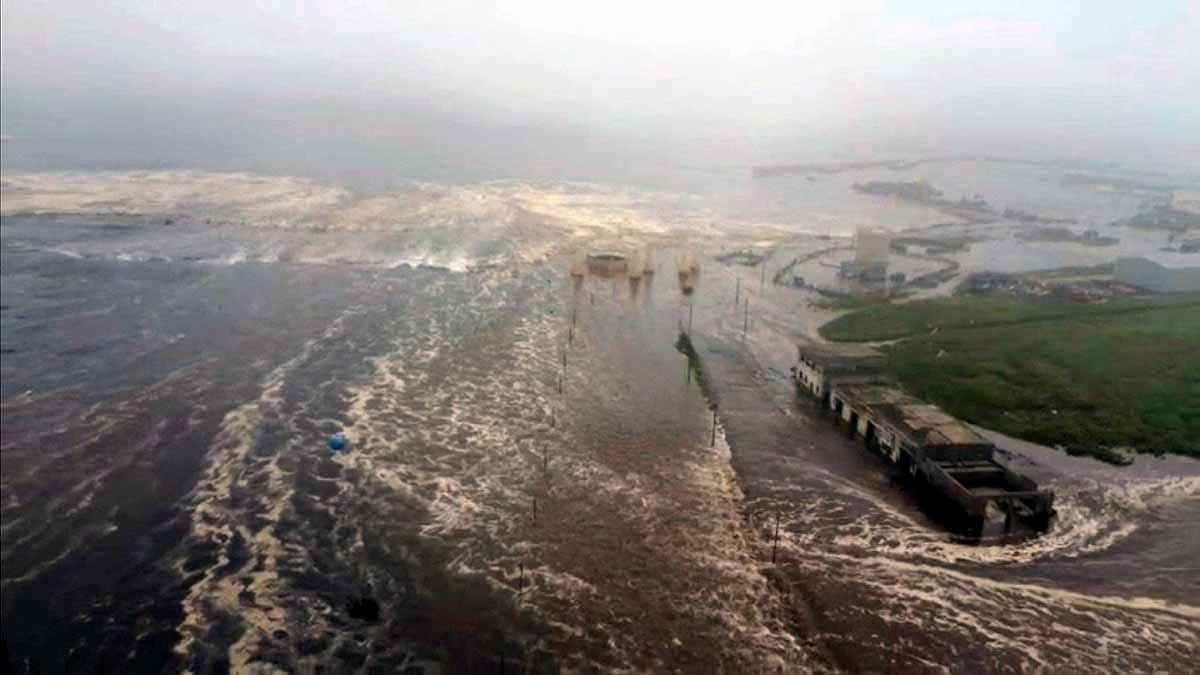
Source: aajtak
Which Countries and Cities Are at Risk?
A tsunami threat looms over several countries surrounding the Pacific Ocean. Here's a list of countries and cities that have been issued tsunami warnings or advisories...
Russia
Areas/Cities: Kuril Islands (Severo-Kurilsk, Paramushir Island), Petropavlovsk-Kamchatskiy.
Threat: Waves of 3-5 meters high; waves reaching 3-4 meters have already hit Severo-Kurilsk.
Impact: Building damage, flooding, and evacuations; emergency declared in Sakhalin region.
Japan
Areas/Cities: Hokkaido (Nemuro, Tokachi), Tohoku, Kanto, Izu and Ogasawara Islands, Wakayama Prefecture.
Threat: Waves ranging from 0.3 to 3 meters. Hokkaido has already experienced waves of 30-60 centimeters. No anomalies spotted at Fukushima Daiichi Nuclear Plant, but 4000 employees are taking refuge in higher locations.
Impact: Evacuation orders for 1.9 million people, with Sendai Airport shut down. Memories of the 2011 Tohoku earthquake are vivid.
Watch How Tsunamis Conquer Shores...
Hawaii (United States)
Areas/Cities: Entire Hawaiian Islands, especially Honolulu, Hilo, Kauai, Oahu.
Threat: Waves 1-3 meters (3-10 feet) high; 6-foot waves measured at Midway Atoll.
Impact: Coastal flooding, damage to vehicles and infrastructure; evacuation resulting in traffic jams.
Read More:
California (United States)
Areas/Cities: Crescent City, Port San Luis, San Francisco Bay, Los Angeles.
Threat: Tsunami warning for 2-5 feet waves in Northern California (Cape Mendocino to Oregon border); tsunami advisory for waves under 1 foot for the rest of California's coast.
Impact: Potential 4.8-foot waves in Crescent City; minor impact on Southern California.
Alaska (United States)
Areas/Cities: Aleutian Islands, Amchitka Island, Kodiak, and southern Alaskan coast.
Threat: Waves of 1-3 meters; 1-foot waves recorded at Amchitka.
Impact: Coastal inundation and strong currents.
Solomon Islands
Areas/Cities: Coastal areas.
Threat: Waves 1-3 meters high.
Impact: Flooding and damages on sparsely populated islands.
Other Countries
Chile: 1-3 meter high waves in coastal regions.
Ecuador: Waves exceeding 3 meters in some coastal areas.
Peru: Waves up to 3 meters by Wednesday morning.
Philippines: Less than 1-meter high waves on the eastern coast.
Guam and Northern Mariana Islands: Tsunami advisory issued.
New Zealand: Strong currents and irregular waves.
Canada: Tsunami advisory for British Columbia's coastal regions.
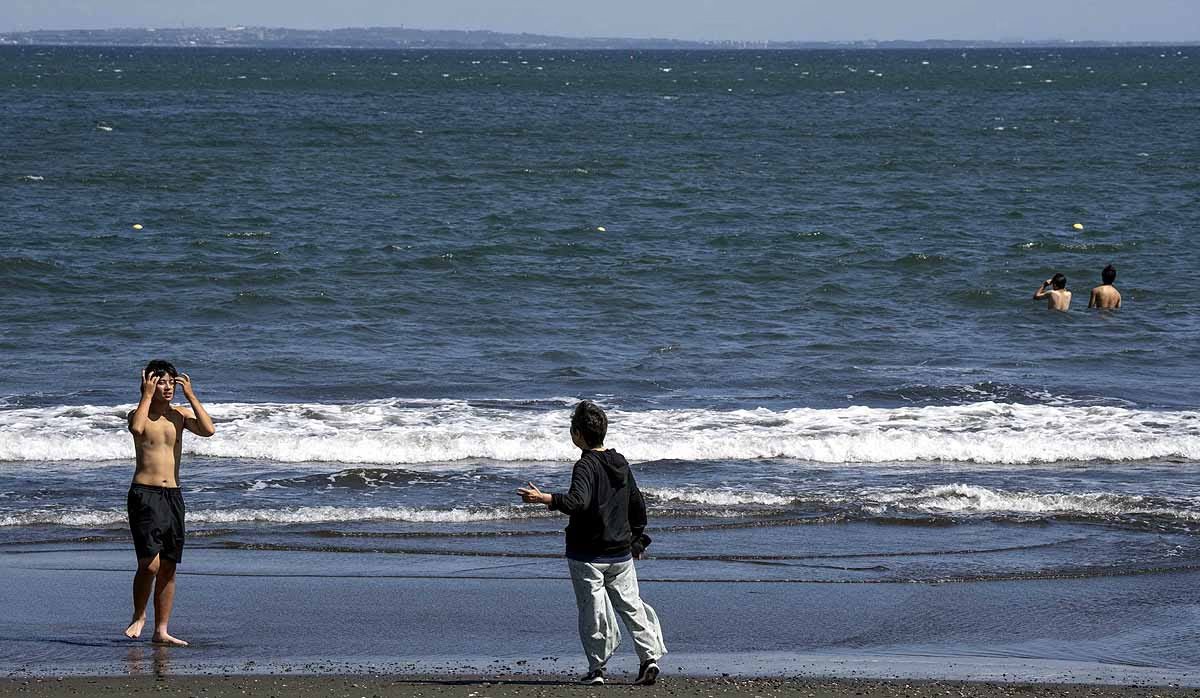
Source: aajtak
When and How Long Will the Tsunami Waves Reach?
Tsunami waves spread in the Pacific Ocean at varying speeds, reliant on ocean depth. Below is a listicle detailing anticipated or actual arrival times for the first waves at different locations. Timings are based on local and Indian Standard Times (IST) and derive from PTWC and other sources.
Russia (Kuril Islands, Severo-Kurilsk)
Arrival Time:
July 30, 2025, from 9:00-10:00 AM (Kamchatka time, 5:30-6:30 AM IST).
Elapsed Time:
35-65 minutes post-quake.
Wave Height:
3-5 meters (9.8-16.4 feet), reaching up to 5 meters.
Impact:
Damaged structures and floods.
Japan (Hokkaido, Nemuro, Tokachi)
Arrival Time:
July 30, 2025, at 10:00 AM (Japan time, 6:30 AM IST).
Elapsed Time:
Approximately 65 minutes post-quake.
Wave Height:
Recorded waves of 30-60 centimeters (1-2 feet), with possible waves up to 3 meters.
Impact:
Evacuations in coastal areas and closure of Sendai Airport, with Fukushima Nuclear Plant on alert.
Hawaii (Kauai, Honolulu, Hilo, Oahu)
Arrival Time:
July 30, 2025, between 7:10-7:30 PM (Hawaii time, 1:40-2:00 AM IST).
Elapsed Time:
Approximately 6 hours post-quake.
Wave Height:
1-3 meters (3-10 feet); recorded heights of 4 feet in Haleiwa (Oahu) and 6 feet at Midway Atoll.
Impact:
Coastal flooding, traffic congestion, and evacuations of ports.
Read More:
Alaska (Aleutian Islands, Amchitka, Kodiak)
Arrival Time:
July 30, 2025, at 5:14 PM (Pacific Time, 6:44 AM IST) in Amchitka, and 12:20 AM ET (10:50 AM IST) in Kodiak.
Elapsed Time:
4-6 hours post-quake.
Wave Height:
1-foot in Amchitka; 1-3 meters possible elsewhere.
Impact:
Strong currents and coastal flooding.
California (Crescent City, San Francisco, Los Angeles)
Arrival Time
Crescent City:
July 30, 2025, at 11:50 PM (Pacific Time, 1:20 PM IST).
San Francisco:
July 31, 2025, at 12:40 AM (Pacific Time, 2:10 PM IST).
Los Angeles:
July 31, 2025, at 1:05 AM (Pacific Time, 2:35 PM IST).
Elapsed Time:
8-9 hours post-quake.
Wave Height:
2-5 feet in Crescent City; under 1 foot in San Francisco and Los Angeles.
Impact:
Flood threats in Northern California; minor effects in Southern California.
Solomon Islands
Arrival Time:
July 30, 2025, at 12:00 PM (local time, 7:30 AM IST).
Elapsed Time:
6-7 hours post-quake.
Wave Height:
1-3 meters (3-10 feet).
Impact:
Coastal flooding and damage.
Chile
Arrival Time:
July 31, 2025, at 6:00 AM (local time, 3:30 PM IST).
Elapsed Time:
12-14 hours post-quake.
Wave Height:
1-3 meters.
Impact:
Coastal flooding and infrastructure damage.
Read More:
Ecuador
Arrival Time:
July 31, 2025, at 7:00 AM (local time, 5:30 PM IST).
Elapsed Time:
14-15 hours post-quake.
Wave Height:
Over 3 meters.
Impact:
Intense flooding and destruction.
Peru
Arrival Time:
July 31, 2025, at 8:00 AM (local time, 6:30 PM IST).
Elapsed Time:
15-16 hours post-quake.
Wave Height:
Up to 3 meters.
Impact:
Coastal flooding.
Philippines
Arrival Time:
July 30, 2025, at 1:00 PM (local time, 10:30 AM IST).
Elapsed Time:
7-8 hours post-quake.
Wave Height:
Less than 1 meter.
Impact:
Minor flooding and strong currents.
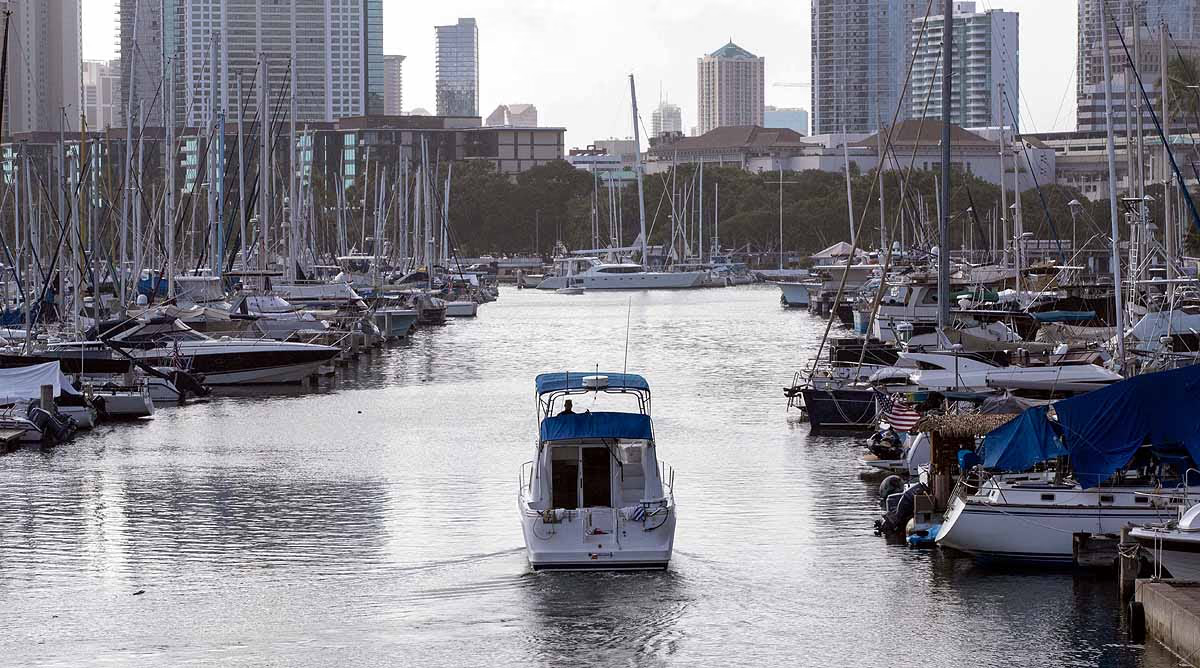
Source: aajtak
How Long Will the Threat Last?
Tsunami waves can persist for several hours; the first wave isn't always the largest. Per PTWC, the tsunami's effects may last until the following times...
Russia and Japan: Until the afternoon of July 30, 2025 (local time). Waves may arrive for up to 24 hours. Tsunami warnings in Japan might remain in effect for at least a day.
Hawaii: From the night of July 30, 2025, to the morning of July 31. Waves could impact over 12-24 hours.
California: Until the morning of July 31, 2025. Effects in Crescent City might last for up to 30 hours.
Alaska: From the night of July 30, 2025, to the morning of July 31.
Solomon Islands, Chile, Ecuador, Peru: Until the afternoon of July 31, 2025, with effects lasting 12-24 hours.
Tsunami advisories will persist until there are no more threats from waves. Japan's weather agency indicates waves could extend beyond a day.
Tsunami Impact and Precautions
Tsunami waves crash onto shores with scorching speed, causing rampant destruction. Hawaii's governor, Josh Green, highlighted how even a 3-foot wave can sweep away cars, uproot trees, and breach fences. Waves as swift as 6 inches can topple individuals, while 2-foot waves can wash away vehicles.
Precautions
Evacuation: Immediately retreat from coastal areas to high ground or the fourth floor of sturdy buildings.
Stay Away from the Shore: Avoid the beach to spectate waves.
Disaster Management: Follow the counsel of local authorities and tsunami warning centers (e.g., tsunami.gov).
Earthquake-Proof Measures: Future-proof buildings and refined urban planning are imperative.
Impact on India
The Indian National Center for Ocean Information Services (INCOIS) confirms no tsunami threat to India or the Indian Ocean due to this earthquake. Nevertheless, Indian coastal areas need to remain vigilant to earthquakes and tsunamis, as evidenced by the 2004 Indian Ocean tsunami.
